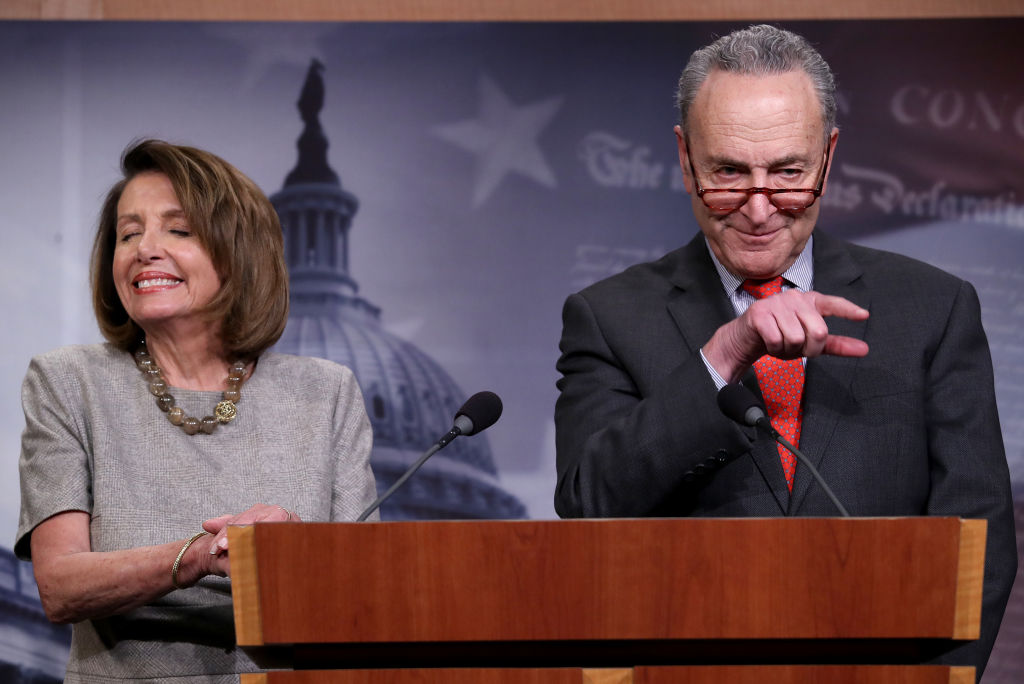Democrats are trying not to gloat until after Trump signs the border and spending bill


A free daily email with the biggest news stories of the day – and the best features from TheWeek.com
You are now subscribed
Your newsletter sign-up was successful
Senate Majority Leader Mitch McConnell (R-Ky.) spoke with President Trump on the phone at least three times Thursday as Trump balked over signing the bipartisan spending bill that includes $1.375 billion for border fencing, not $5.7 billion for the border wall he demanded, The Washington Post reports, citing more than two dozen sources. McConnell and other Senate Republicans had "spent recent days on the phone, soothing him" and telling him Democrats lost, and when Trump finally agreed to sign the bill, McConnell rushed to the Senate floor, The New York Times adds, "interrupting a colleague's speech to announce Mr. Trump's decision, in effect locking it in before he could change his mind."
With Trump pairing his decision with a legally dubious emergency declaration, "White House officials insisted Thursday that Trump was acting in a defiant and assertive way," the Post reports, but "few Republicans, including the president's closest allies, were pleased with the ending. ... Yet for Trump, the negotiations were never really about figuring out how to win. They were about figuring out how to lose — and how to cast his ultimate defeat as victory instead."
"Time and again, Democrats demonstrated during the negotiations that they — not Trump — had the leverage," the Post reports, and when Democrats agreed to offer Trump $1.45 billion for non-wall fencing, lead negotiator Rep. Nita Lowey (D-N.Y.) "walked into the room and surprised her Senate counterparts by lowering the offer to $1.375 billion" — a number lead Senate negotiator Richard Shelby (R-Ala.) "accepted without a fight."
The Week
Escape your echo chamber. Get the facts behind the news, plus analysis from multiple perspectives.

Sign up for The Week's Free Newsletters
From our morning news briefing to a weekly Good News Newsletter, get the best of The Week delivered directly to your inbox.
From our morning news briefing to a weekly Good News Newsletter, get the best of The Week delivered directly to your inbox.
Still, Democrats decided "to be "careful with their language," the Post says, and when Republicans spun the $1.375 billion as a burn on House Speaker Nancy Pelosi (D-Calif.), "Democrats, privately, were amused but made a conscious decision not to gloat," worried their celebrations "might anger Trump enough to veto the deal." Trump "doesn't seem to work on a totally rational basis," Senate Minority Leader Chuck Schumer (D-N.Y.) told the Post. "Little comments throw him off." Read more at The Washington Post.
A free daily email with the biggest news stories of the day – and the best features from TheWeek.com
Peter has worked as a news and culture writer and editor at The Week since the site's launch in 2008. He covers politics, world affairs, religion and cultural currents. His journalism career began as a copy editor at a financial newswire and has included editorial positions at The New York Times Magazine, Facts on File, and Oregon State University.
